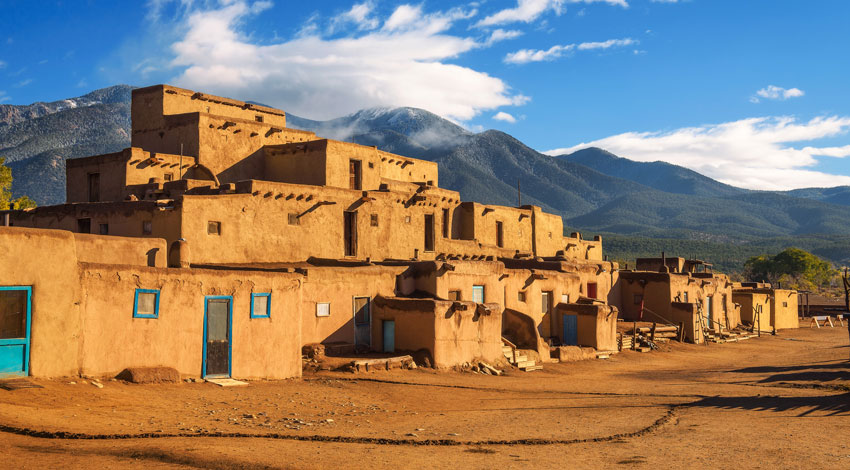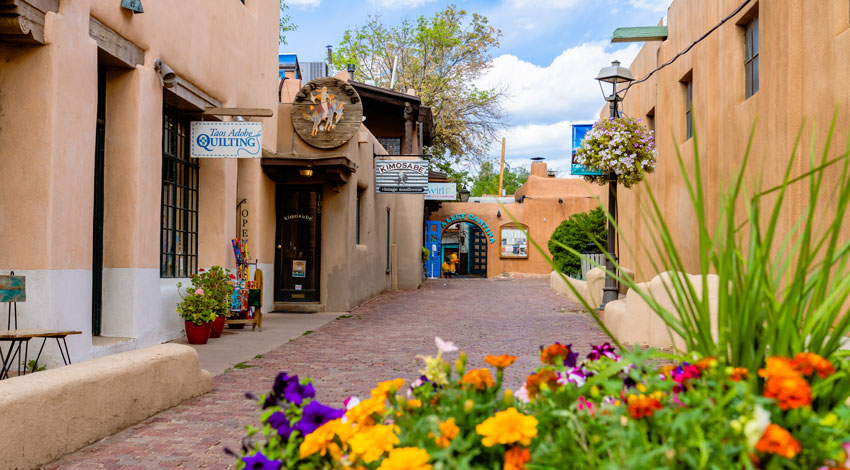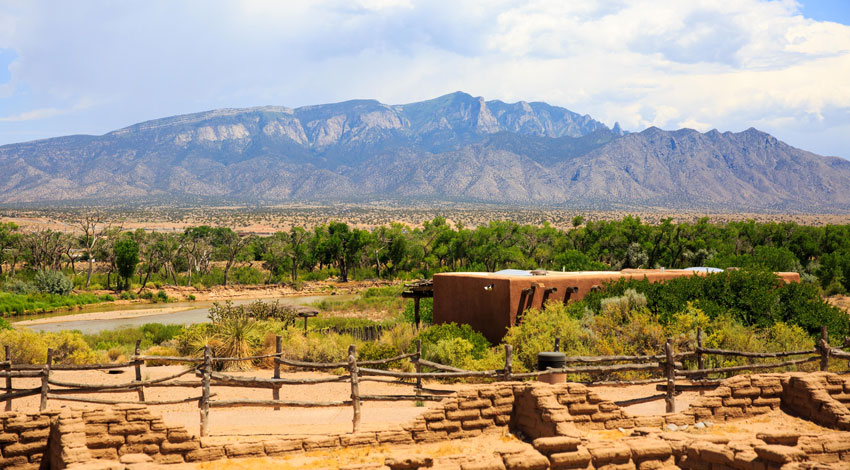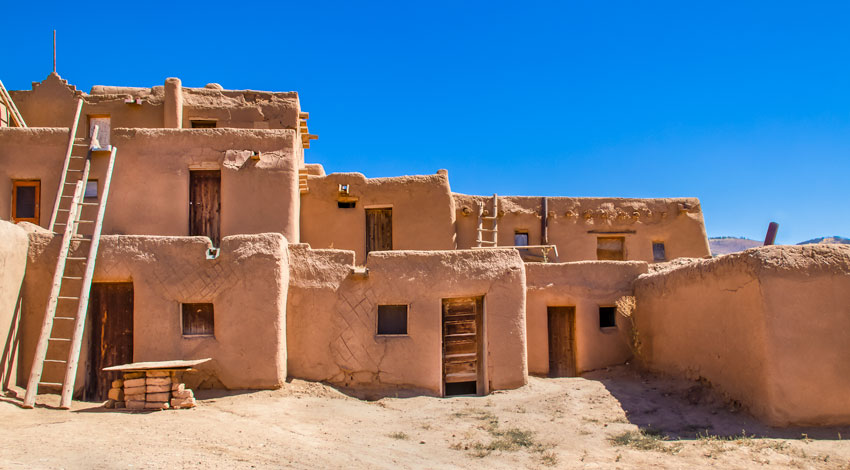Celebrating Indigenous People: What to Expect When Visiting Pueblos With Road Scholar
In recent years, interest in Indigenous culture and history has been on the rise, fueled by popular culture with more books, films and television shows created by and featuring Indigenous stories and characters than ever before. (Think of T.V. series like “Reservation Dogs,” or books like “There, There” by author Tommy Orange.)
As we hold fast to our educational roots, Road Scholar strives to provide impactful experiences for participants on our learning adventures in New Mexico.

“We choose to visit Indigenous communities and hear about their history and culture from the people with the lived experience,” says Elena Junes, Road Scholar’s Director of Programs in the Southeast. “Whenever possible, we include meals and activities with local community members to encourage dialogue and enhance cultural discourse. When we visit archaeological sites, we include the voices of descendant communities as part of the educational content we provide. We recognize these sites not as ‘ruins’ but as deeply personal and sacred spaces to the people whose ancestors resided there.”
When Road Scholars visit the Taos Pueblo — a UNESCO World Heritage Site — a member of the community leads the group exploration. They weave together the narratives of this extraordinary community in ways that no outsider can.

Participants also enjoy an experience at the Institute of American Indian Arts, a congressional chartered college for Indigenous students, with a presentation by a member of the Tesuque Pueblo. He talks about the history of his community and how they are maintaining their lifeways. His family cooks and serves the lunch which is created with local, traditional ingredients that the family farms, hunts and gathers.
Road Scholars also take part in a dining experience at Ohkay Owingeh Pueblo, where a tribal member and her family teach our participants how to cook in the outdoor ovens, called “pan’tays” in Tewa. The meal is traditional “Feast Day” with many options served family-style.
For our holiday program, Santa Fe Holiday Traditions: Beyond the Ordinary, we bring participants to several different pueblos to experience the solstice celebrations. Different dances are held to commemorate the season and we have “Christmas dinner” served at Tesuque Pueblo. This is an experience that is not available anywhere else!

“We want our participants to have meaningful experiences that celebrate the connections between people,” says Elena. “We also want to highlight the special relationship that Indigenous people have with the land. As we face the effects of climate change, we can learn a lot from Indigenous people.”
While Road Scholar learning adventures offer a special access to these unique communities, it’s important to remember that Native Pueblos and reservations are sovereign nations with their own tribal laws and regulations. All visitors must comply with these laws which could include the confiscation of electronic devices being used in a manner contrary to their laws. There may also be times when tribal leaders need to restrict access because of private ceremonies and other reasons.
If you will be joining Road Scholar on a future learning adventure in New Mexico, you may find these rules of etiquette when visiting Pueblos helpful!

Access within the Pueblos
- Although most Pueblos are open to the public during daylight hours, the homes are private. Like any village, the Pueblos are home to those who live there and should be respected as such.
- Pueblo villages, including Kivas, ceremonial rooms, and cemeteries are sacred places and restricted for use by Pueblo members only. Please observe all signage indicating OFF LIMITS areas.
Cameras and electronics
- Most Pueblos require a permit to photograph on location. Some Pueblos prohibit photography at all times and all pueblos prohibit photographs of dances/ceremonies. If photography is allowed, always ask for permission before taking a photograph of a tribal member. REMEMBER: cameras, camera phones, and film can be confiscated.
- Refrain from bringing a cell phone onto Pueblos. Tribal officials could confiscate cell phones if they feel they might be used for photography or recording. Also, the ring tones as well as personal conversations can easily disrupt others, as well as daily tribal life.
Basic Etiquette
- Tribes value traditions, customs and religion. Some actions and/or questions could be offensive, so refrain from pressing for answers.
- If organized tours are offered, please remember to stay with your tribal guide at all times.
- The carrying or use of alcohol and drugs on Pueblos is strictly prohibited.
- Do not remove artifacts, pottery shards or other tempting items.
Dances and Ceremonies
- Tribal communities do not use the clock to determine when it is time to conduct activities. Acts of nature, as well as the sequence of events that must take place (some not for public viewing) usually determine start and finish times for ceremonies.
- Silence is mandatory during all dances and Pueblo ceremonies. This means no questions about the ceremonies or dances while they are underway; no interviews with the participants; no walking across the dance plaza; and, no applause during / after the dance or ceremony. Tribal dances are religious ceremonies, not public performances. It is a privilege to witness a ceremony.
Ready to explore New Mexico and learn about Indigenous cultures for yourself? Join us on Ancient Puebloans: Mesas, Monuments, Canyons and More!
